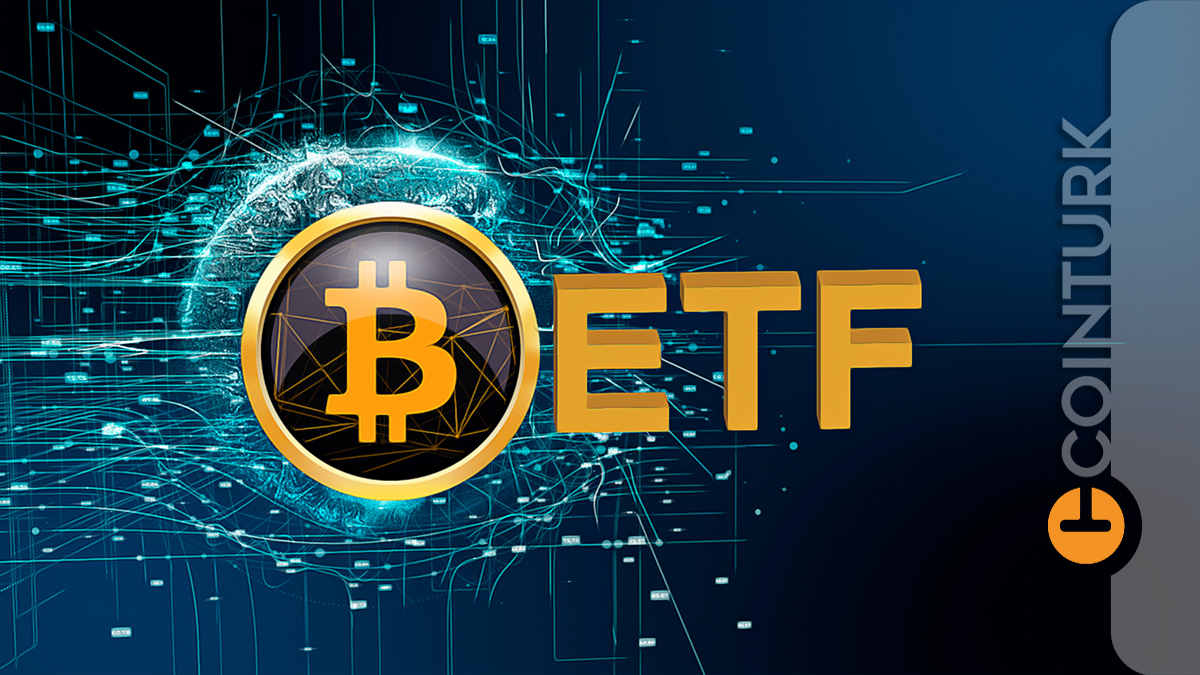Bitcoin ETFs have emerged as financial instruments, providing investors with alternative ways to engage with Bitcoin. In this article, we will examine the five fundamental differences between owning actual Bitcoin and investing in Bitcoin ETFs. We will focus on the basic characteristics to explore the pros and cons of each approach.
Ownership and Custody: Bitcoin and BTC ETFs
Bitcoin: An investor owning Bitcoin has direct ownership of the digital asset. Protecting and managing private keys is the investor’s responsibility.
Bitcoin ETF: Investing in a Bitcoin ETF does not require direct ownership. Investors claim an indirect right to Bitcoin assets by purchasing shares in the ETF. Security and custody are provided by the ETF provider.

Pros and Cons:
- Bitcoin: Provides full control over private keys but safekeeping is the investor’s responsibility.
- Bitcoin ETF: Custody managed by the ETF provider relieves investors from dealing with private keys but limits direct ownership and control.
Liquidity and Accessibility
Bitcoin: Real Bitcoin trading occurs on crypto exchanges, providing 24/7 access. Liquidity depends on the exchange and demand.
Bitcoin ETF: ETFs trade on traditional exchanges during set hours, which can limit instant access and liquidity.
Pros and Cons:
- Bitcoin: Offers 24/7 market presence and potential high liquidity, but decentralized nature can lead to varying liquidity levels.
- Bitcoin ETF: Provides ease of trading on familiar exchanges, but limited trading hours and potential market inefficiencies can occur.
Performance Tracking
Bitcoin: Price directly reflects market value, offering investors real-time performance tracking.
Bitcoin ETF: ETF prices can be affected by Bitcoin market movements as well as factors like management fees and ETF demand.
Pros and Cons
- Bitcoin: Allows direct price tracking for a clear understanding of asset performance but exposes to crypto market volatility.
- Bitcoin ETF: Adds fund-related factors for easier tracking but can have discrepancies between ETF and actual Bitcoin prices.
Regulatory Environment
Bitcoin: Operates in a decentralized and unregulated environment, subject to regulatory developments.
Bitcoin ETF: Subject to regulatory approval and oversight, offering a regulated investment vehicle in traditional financial markets.
Pros and Cons
- Bitcoin: Offers decentralization and freedom but may face regulatory uncertainty.
- Bitcoin ETF: Provides regulatory oversight and security but restrictions may limit certain aspects of the ETF.
Dividends and Income
Bitcoin: Owning Bitcoin does not produce passive income or dividends; earnings come from changes in asset value.
Bitcoin ETF: Some ETFs may distribute dividends or income generated from their operations.
Pros and Cons
- Bitcoin: Includes potential for capital gains but does not provide passive income on its own.
- Bitcoin ETF: Offers the possibility of earning dividends and a potential income stream, depending on the ETF’s structure and activities.
In conclusion, both holding Bitcoin and investing in Bitcoin ETFs offer different advantages and disadvantages. The choice depends on individual preferences, risk tolerance, and investment goals.

 Türkçe
Türkçe Español
Español










